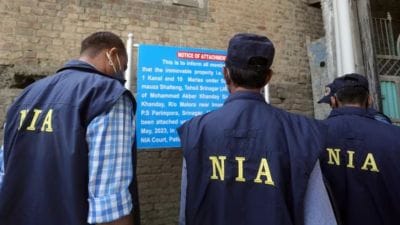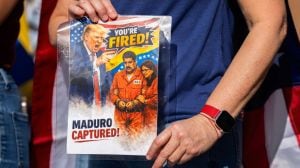145;No veto isn146;t reduced status146;
The suggestion to expand the permanent membership of the UN Security Council without any of the new entrants being given veto power has spar...

The suggestion to expand the permanent membership of the UN Security Council without any of the new entrants being given veto power has sparked off a debate that is unlikely to end soon. But the sole Indian in the 16-member panel set up by UN Secretary General Kofi Annan last year believes this is as good as it gets for aspiring countries like India.
In an exclusive interaction with The Indian Express, Lt Gen Retd Satish Nambiar, while recounting the debates that went on at the six meetings of the panel, refuted all suggestions that India can at the most aspire for second-class membership of the UNSC. 8216;8216;We may not get the veto but that doesn8217;t make it second class. This is definitely first class except that we may not get our choice of berth.8217;8217;
The panel has suggested two models for expanding the UNSC to 24 members:
8226; Model A 5613: Adding six permanent members, two each from Asia and Africa and one each from Europe and the Americas.
8226; Model B 5811: Inclusion of eight new members with four-year terms, two each from Asia, Africa, Europe and the Americas. Membership can be renewed. India, Brazil, Germany and Japan, the four countries which have called for expansion and reforms of the UNSC, welcomed the report at New York for recognising the need for such reforms.
However, External Affairs Minister K. Natwar Singh said in the Rajya Sabha yesterday that UNSC membership without veto power will not be acceptable. As this debate is bound to intensify in the days ahead, Nambiar says any insistence on the new members also getting veto power or complete removal of veto from the existing five countries would have scuttled the entire effort. 8216;8216;All this may be right but the ground realities are different. Any such recommendation would not fly and the report would have simply fallen by the wayside.8217;8217;
But Nambiar highlights the fact that the report calls for minimal use of veto and has even suggested a process of indicative voting wherein if two or more members are against a proposal, the sponsor should reconsider it rather than veto it.
8216;8216;The veto is an anachronistic relic of the old arrangement and there was consensus that use of veto should be reduced8230;but let me tell you, not having veto power doesn8217;t reduce status. A country like India may now be able to participate at the highest level of decision-making process,8217;8217; he said, listing the positives that emerge for India if the recommendations are implemented.
Nambiar himself was not in favour of the second model. In fact, there was considerable opposition to the idea when it was first mooted at the panel8217;s fourth meeting. It was at the fifth meeting that the panel agreed to suggest two models taking into account the differences in opinion.
The panel has endorsed the 8216;8216;use of force as a last resort8217;8217; to protect civilians from genocide, ethnic cleansing and other comparable atrocities. While acknowledging the right of a sovereign state to resolve inetrnal issues, the panel has favoured pro-active intervention by the international community. Nambiar also underlined the emphasis given by the report on human development and security. 8216;8216;I would like to mention this because there was a consensus that it is in societies deprived of development and human security where terrorism finds breeding grounds.8217;8217;
- 01
- 02
- 03
- 04
- 05































